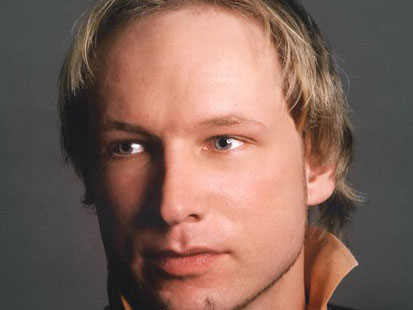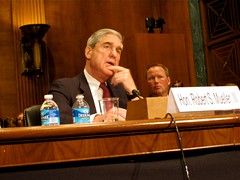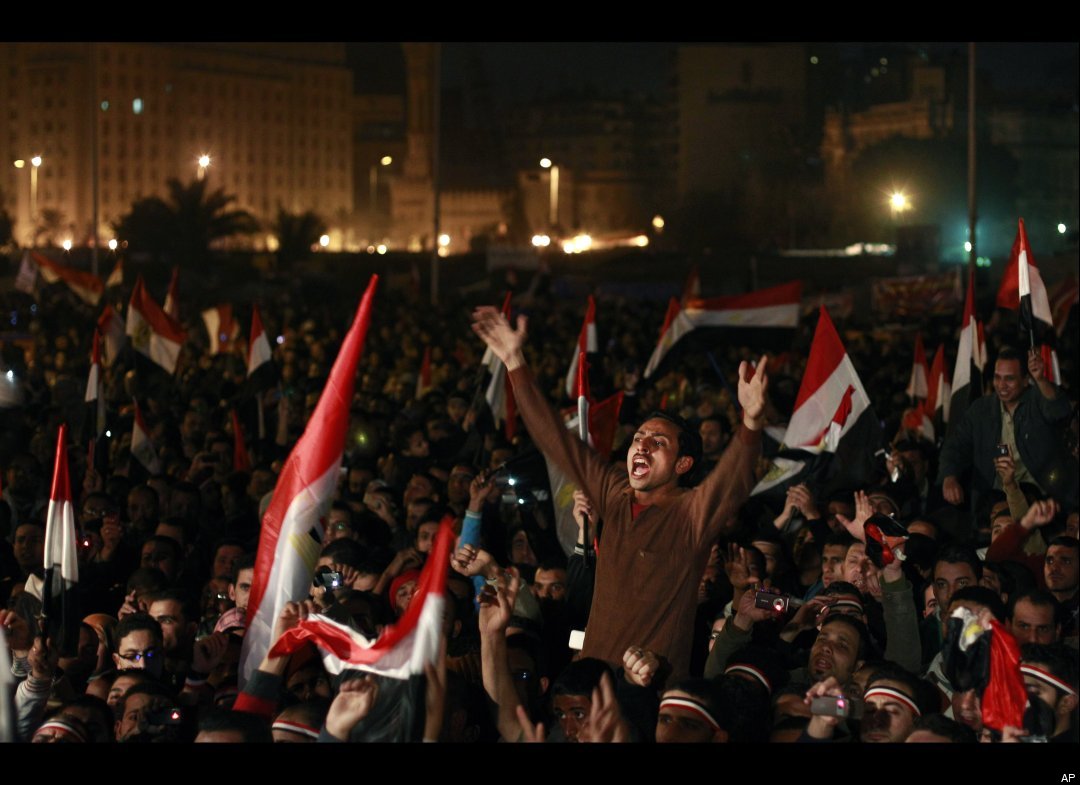| Photo Credit: Jen Palacio 2011 |
Download this episode (right click and save)
Follow us on Twitter: Al, Shahid, Fouad, and Reggie.
| Photo Credit: Jen Palacio 2011 |
 Earlier this summer, when facing a crucial accountability moment for an agency that continues to abuse the rights of millions of Americans, members of Congress asked no tough questions, avoided controversy, and submitted to a White House proposal to entrench the FBI leadership—at the same time as they fought to the knuckles over issues that Congress created in the first place by spending the country into a fiscal black hole and absurdly cutting taxes in the midst of multiple wars.
Earlier this summer, when facing a crucial accountability moment for an agency that continues to abuse the rights of millions of Americans, members of Congress asked no tough questions, avoided controversy, and submitted to a White House proposal to entrench the FBI leadership—at the same time as they fought to the knuckles over issues that Congress created in the first place by spending the country into a fiscal black hole and absurdly cutting taxes in the midst of multiple wars. |
| Breivik, the white, right-wing, Christian fundamentalist, terrorist suspect in the Oslo attacks. |


The last ten years have witnessed an assault on the constitutional rights of law-abiding Americans, led largely by the FBI. Appointed mere days before the 9/11 attacks, Director Robert S. Mueller III has guided the bureau through the resurrection of many long discredited practices from its COINTELPRO era. Yet, the Obama administration has proposed extending Mueller's term as FBI director. Congress should reject the proposal and insist on a nominee from outside the bureau to restore accountability, law and order. Just ask Nick Merrill in New York, Joe Iosbaker in Chicago or Ahmadullah Niazi in Los Angeles: three law-abiding Americans whose constitutional rights are among the casualties of the last decade.

 |
| Protesters pack the State Capital building in Madison |
 |
| Bill...can we have a word? |
 |
| Egyptian soldier in Tahrir Square |
 On this edition of the There is No Spoon show, we discuss the unrest in Egypt and how it relates to the region as a whole. We cover the Muslim Brotherhood, American foreign policy, authoritarian persistance, social movements, and political and economic roots of the uprisings. Our guest is Hesham Sallam, a PhD candidate at Georgetown who studies the persistance of authoritarian regimes, comparative Middle East politics, and is the co-editor of Jadaliyya, and online e-zine produced by the Arab Studies Institute - it is a great resource for analysis of the Middle East. Now that Mubarak has resigned, listen to the podcast and be informed about the issues that will develop in the coming days, weeks, and months.
On this edition of the There is No Spoon show, we discuss the unrest in Egypt and how it relates to the region as a whole. We cover the Muslim Brotherhood, American foreign policy, authoritarian persistance, social movements, and political and economic roots of the uprisings. Our guest is Hesham Sallam, a PhD candidate at Georgetown who studies the persistance of authoritarian regimes, comparative Middle East politics, and is the co-editor of Jadaliyya, and online e-zine produced by the Arab Studies Institute - it is a great resource for analysis of the Middle East. Now that Mubarak has resigned, listen to the podcast and be informed about the issues that will develop in the coming days, weeks, and months. To all our readers: we'll be making a big change to the blog in the coming week or two. While there will still be occasional posts on the site, we'll be shifting to a (we hope) every-other-week podcast. We enjoy blogging, but feel that it would be more efficient for us to do a talk show. It is probably going to be easier for all of you as well. Instead of reading through a post, you can simply download the mp3 file for each podcast and listen to it on your subway ride, car ride, gym workout, etc. We're planning on having guests on our show when possible. Think of Real Time with Bill Maher - except with smart people! Anyway, we're excited about this transition, and we hope it makes it easier and more entertaining for all of you. Expect our first podcast any day now. The first show will be focused on the revolts in the Middle East.
To all our readers: we'll be making a big change to the blog in the coming week or two. While there will still be occasional posts on the site, we'll be shifting to a (we hope) every-other-week podcast. We enjoy blogging, but feel that it would be more efficient for us to do a talk show. It is probably going to be easier for all of you as well. Instead of reading through a post, you can simply download the mp3 file for each podcast and listen to it on your subway ride, car ride, gym workout, etc. We're planning on having guests on our show when possible. Think of Real Time with Bill Maher - except with smart people! Anyway, we're excited about this transition, and we hope it makes it easier and more entertaining for all of you. Expect our first podcast any day now. The first show will be focused on the revolts in the Middle East.
 Al Jazeera has kind of owned the coverage of the revolt in Egypt, though apparently their Cairo offices were just raided (according to Amy Goodman on Democracy Now this morning). If you're like many in the U.S. who don't get Al Jazeera on TV, you can stream their around-the-clock coverage online here. Another one of my favorite sources is Democracy Now's Sharif Abdel Kouddous, who has been on many news shows in the past few days, including the Rachel Maddow and Ed Schultz shows on MSNBC. Sharif has been one of the best sources on the ground in Cairo, and his tweets have gotten picked up by everyone. Follow him on Twitter by clicking here. Sharif's latest tweet, as of an hour ago: "Thousands continue to stream across Kasr El Nile bridge. Very festive atmosphere. What a contrast to Wednesday's govt-sponsored brutality."
Al Jazeera has kind of owned the coverage of the revolt in Egypt, though apparently their Cairo offices were just raided (according to Amy Goodman on Democracy Now this morning). If you're like many in the U.S. who don't get Al Jazeera on TV, you can stream their around-the-clock coverage online here. Another one of my favorite sources is Democracy Now's Sharif Abdel Kouddous, who has been on many news shows in the past few days, including the Rachel Maddow and Ed Schultz shows on MSNBC. Sharif has been one of the best sources on the ground in Cairo, and his tweets have gotten picked up by everyone. Follow him on Twitter by clicking here. Sharif's latest tweet, as of an hour ago: "Thousands continue to stream across Kasr El Nile bridge. Very festive atmosphere. What a contrast to Wednesday's govt-sponsored brutality."
 Wait a second...I though Arabs and Muslims and the Middle East region in general couldn't really handle democracy? That something about their culture explained that these people needed strong man running their states, not (real) popular electoral contests and a representative system of government. Well, I am shocked to see what is happening in the streets of Cairo right now. I am a bit surprised about what has happened in Tunisia, what is starting up in Yemen. Actually, I am a little alarmed by the level of repression used by the Mubarak regime in Egypt to try and silence the political dissent when it is clear the whole world is watching. But in terms of what is happening in the streets, this moment has been building for a long time. And no, Arabs, Muslims, and people in the Middle East are not predisposed to authoritarian rule. That's just the system that's been forced on them by force by some of their own elites and great powers abroad.
Wait a second...I though Arabs and Muslims and the Middle East region in general couldn't really handle democracy? That something about their culture explained that these people needed strong man running their states, not (real) popular electoral contests and a representative system of government. Well, I am shocked to see what is happening in the streets of Cairo right now. I am a bit surprised about what has happened in Tunisia, what is starting up in Yemen. Actually, I am a little alarmed by the level of repression used by the Mubarak regime in Egypt to try and silence the political dissent when it is clear the whole world is watching. But in terms of what is happening in the streets, this moment has been building for a long time. And no, Arabs, Muslims, and people in the Middle East are not predisposed to authoritarian rule. That's just the system that's been forced on them by force by some of their own elites and great powers abroad.